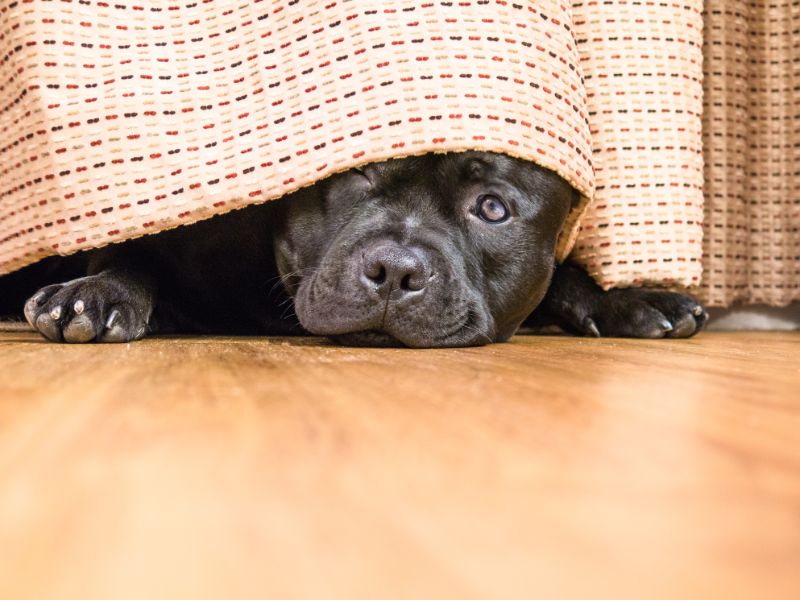
Summer is the busiest time of the year. While your pet may seem to go with the flow, they probably wouldn’t argue with an extended nap in the hammock with their favorite person.
But even quiet times can be punctuated with construction noise, traffic, lawn mowers, weed wackers, sirens, vacuum cleaners, hair dryers, and other sounds that have the potential to upset even the calmest animals.
Similarly, thunderstorms and fireworks are common triggers of noise anxiety in pets. Fortunately, there are strategies to soothe and settle powerful fear reactions.
Terribly Fearful
Behaviorists say that up to half of all dogs demonstrate fear responses to loud noises. However, many pets are triggered by sounds that are seemingly innocuous. Whatever the case may be, pet owners typically know exactly which noises set off their pets.
If left unresolved, repetitive exposure to triggers can cause phobias or other serious anxiety disorders, such as separation anxiety.
In Anticipation
Symptoms of pet noise anxiety can manifest when directly confronted by a specific trigger, but they can also occur when the sound is merely anticipated. For instance, many pets can sense the shift in barometric pressure preceding a thunderstorm and may start to show the following signs:
- Panting
- Pacing or circling
- Drooling
- Constant lip-licking
- Abnormal bathroom habits
- Excessive grooming
- Destructiveness
- Dilated pupils
- Clinginess
- Increased vocalization
- Decreased appetite
- Hiding
- Bolting
Pet noise anxiety can be so severe that they become dangerous to themselves or others. Some respond to a fight-or-flight instinct. A pet’s microchip, in addition to their ID tags, can help to bring them home after an attempt to escape. However, due to the serious threat of traffic or fights with other animals we urge pet owners to do all they can to ensure their pet remains at home.
Managing Noise Anxiety in Pets
At the first sign of a trigger, bring your pet inside the home. If they are crate trained, encourage them to lay down inside it. Otherwise, simply stay close to them in a room with closed windows and doors, low lighting, and soft music or TV playing in the background.
You may be able to distract them with their favorite game, toy or treat. Always offer up fresh, clean water. Invest in a snug-fitting Thundershirt to help reduce pet noise anxiety.
If you won’t be at home on the Fourth of July, or any day that might induce pet noise anxiety, ask a friend or neighbor to check in with your pet. We also offer day or overnight pet boarding if you cannot be there.
Facing Long-Term Solutions
Pet noise anxiety can cause chronic health issues. Extended periods of high stress raise cortisol levels that can create various issues related to their digestion, behavior and personality.
Behavior modification, counterconditioning and desensitization may help in your approach to reducing your pet’s anxiety. If appropriate, we can discuss possible prescription medications intended to treat severe reactions to noise. Because of underlying medical problems that may add to a pet’s anxiety, we must rule them out prior to treatment.
If you have any further questions about pet noise anxiety, please contact us. We’re always here for your pet at Clairmont Animal Hospital.

